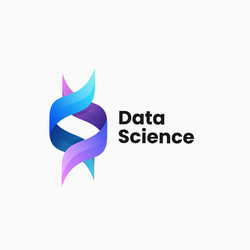
Data Science Specialist
- Certificate upon completion
- 20 lessons
- 5 Days
Course Overview
Data analysis and visualization are essential skills in today’s data-driven world, and Python is a powerful tool for these tasks. Whether you’re new to data analysis or looking to enhance your skills, this course will guide you through the process of exploring, analyzing, and visualizing data using Python.
Course Content
1. Introduction to Data Analysis with Python
- Introduction to the course objectives and structure.
- Overview of the tools and libraries (Python, Jupyter, Pandas, Matplotlib, Seaborn).
2. Understanding Data Analysis
- Importance of data analysis in decision-making.
- Types of data (numerical, categorical, text).
- Setting up the development environment (Python and Jupyter Notebook).
3. Data Loading and Exploration
- Reading data from various sources (CSV, Excel, databases).
- Data exploration using Pandas: basic statistics, data types, missing values.
- Data cleaning and preprocessing: handling missing data, duplicates, and outliers.
4. Data Filtering and Selection
- Selecting rows and columns based on conditions.
- Slicing and indexing data.
- Using boolean masks for data extraction.
5. Data Transformation
- Applying functions to columns (e.g., mathematical operations).
- Creating new columns with derived data.
- Handling categorical data: encoding and one-hot encoding.
6. Aggregating and Grouping Data
- Grouping data by one or more columns.
- Aggregating data: sum, mean, count, etc.
- Pivot tables and cross-tabulations.
7. Introduction to Data Visualization
- The importance of data visualization in data analysis.
- Types of plots: line charts, bar charts, scatter plots, histograms, etc.
8. Getting Started with Matplotlib
- Creating basic plots.
- Customizing plot appearance (labels, titles, colors).
9. Advanced Data Visualization with Seaborn
- Introduction to Seaborn for statistical data visualization.
- Creating advanced plots (e.g., heatmaps, pair plots, violin plots).
- Enhancing plot aesthetics.
10. Exploratory Data Analysis ( EDA )
- Understanding the EDA process.
- Visualizing relationships between variables.
- Correlation analysis.
11. Data Reporting and Communication
- How to present your findings effectively.
- Creating data-driven insights and narratives.
- Using Jupyter Notebook for interactive reporting
12. Practical EDA Project
- Participants work on an EDA project with real-world data.
- Applying the EDA process to extract insights from the data.
- Creating visualizations to communicate findings.
- Project Presentation
- Peer review and feedback.
13. Advanced Topics
- Time Series Analysis: Introduction to time series data and analysis.
- Machine Learning for Data Analysis: Overview of ML algorithms for prediction and classification.
- Geospatial Data Analysis: Introduction to geospatial data and mapping.
Course Objective
- To provide participants with a deep understanding of data analysis and visualization concepts.
- To equip participants with practical Python skills for data manipulation, exploration, and visualization.
- To enable participants to apply data analysis techniques to real-world datasets.
- To develop participants’ proficiency in creating informative and visually appealing data visualizations.
- To prepare participants for further specialization in data science or related fields.
- To foster problem-solving skills through hands-on projects and exercises.
Testimonials
Testimonials
"If you get the chance to enter this bootcamp, consider yourself extremely lucky as they will groom you to have job ready skills. I have learnt a lot from this place."
“I learned many things when I was with this company. such as HTML, CSS, and JS.
The staff also very friendly and comfortable to ask anything i wanted.”
"While following the program for 3 days, I was able to learn a variety of knowledge, especially in the module involving the backend."
"The training is interesting because the way the trainer delivers is very good, easy to understand and casual. The staffs are also very friendly and kind. Many reference materials are shared for trainee reference. The training is hands-on based and two way communication, where very suitable for this course."
"The Moose Academy is highly recommended, should you be interested in learning mobile application development from scratch! Sir Wan Muzaffar is an excellent trainer as he tailor-made each training session to fit his clients’ requirements and understanding levels! On top of that, the training materials provided are informative and easily understandable. My heartiest gratitude to Sir Wan Muzaffar, for all the mobile app knowledge and tricks that he had shared with me, throughout the interactive training session!"
